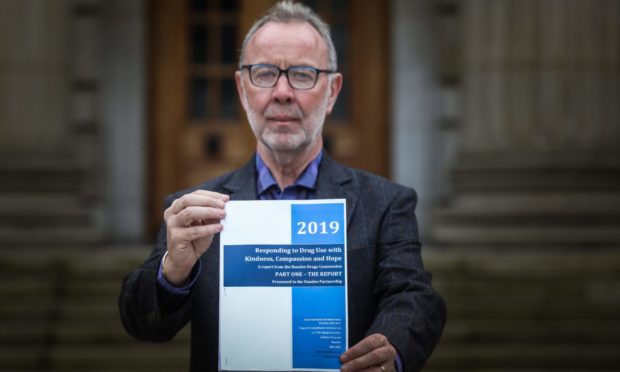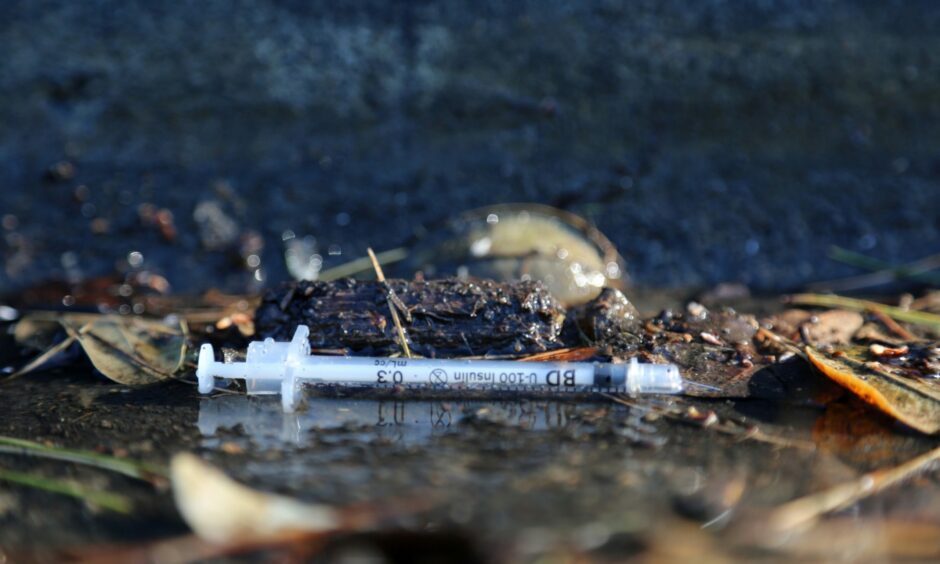Scotland’s drug deaths crisis could take a decade to turn around, a leading expert has warned, after figures rose for the seventh consecutive year.
Dr Robert Peat, chairman of the Dundee Drugs Commission, told The Stooshie podcast it could take up to 10 years to see a sustained downwards trend, as it was revealed the country recorded 1,339 deaths last year – up from 1,264 in 2019.
Dr Peat, who also previously sat on the Scottish Government’s drug deaths taskforce, described the latest figures as “hugely concerning” and said it was clear that compared to the rest of Europe, Scotland has a “major, major problem”.
The Dundee Drugs Commission, an independent panel formed in 2018 to “consider the nature, extent and impact of drug use and to look at drug-related deaths”, is expected to complete a two-year progress review on its recommendations later this year.
As figures rose again across the country last year, the number of drug-related deaths per million people in Dundee actually fell compared to 2019. However, other areas, such as Aberdeen and Aberdeenshire, saw a significant rise.
Dr Peat said it is not yet clear what impact the Covid-19 pandemic had on the figures and whether this will level out following the publication of new quarterly reports.
He said that while some may “quite rightly” wonder why trends have been rising for a number of years in Scotland despite attempts to address the issue, people are working hard to try to make a difference.
“The question really would be, why is Scotland so different?” Dr Peat said.
“It’s a very complex issue. It’s really difficult to say what the impact of Covid has been, other than to say the figures continue to rise.
“I think we need to see how the work of the national taskforce, and the efforts the Scottish Government are now making with additional funding, will make a difference into the future.
“For us as a Dundee Commission, we always said it wasn’t going to be a matter of a year or two years, it is going to be five years, ten years to see the trend in Dundee going downwards.”
A fractured system
Dr Peat said the City of Discovery hosts an example of a “fractured system” that needs significant changes to how services are being delivered.
He warned that many people now dying from drug use may have suffered trauma in childhood or in later life, live in poverty, have difficulties accessing housing and employment, or other complex needs that need to be addressed holistically.
Dr Peat believes a “major problem” across the country is also the lack of a strong link between mental health support and addiction services that has seen people turned away until they are free from drug use.
The expert pointed to same day prescribing, something that was available elsewhere in Scotland but not in Dundee until the Drugs Commission made its recommendations, as an example of quick changes that can have a big impact.
However, he warned that other changes – such as removing stigma and changing the culture of how services are delivered – could take far longer.
A degree of patience
“We said at the outset that it would take a number of years,” Dr Peat said.
“There needs to be a degree of patience and I know if I was to speak to a family member or someone who is using drugs at the moment, they would really criticise me for saying that.
“But changing systems, changing the culture that exists, that was hugely important in our report.
“In Dundee the culture of services and the stigmatisation that exists in our community needs to be turned round if we’re really going to make a difference, and that will only take time.
“It’s going to be an effort for everyone locally but also nationally, people working together to make a difference.”
The Stooshie
To listen and subscribe, free, search for ‘The Stooshie’ on Apple Podcasts, Spotify, Google Podcasts or wherever you get your podcasts!

